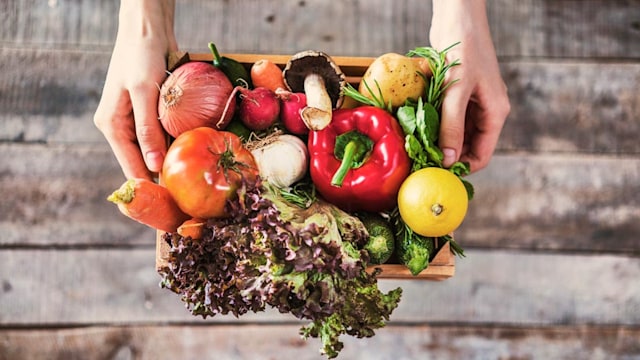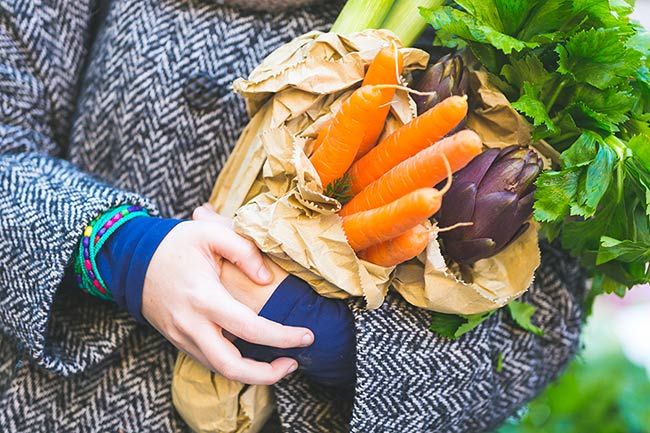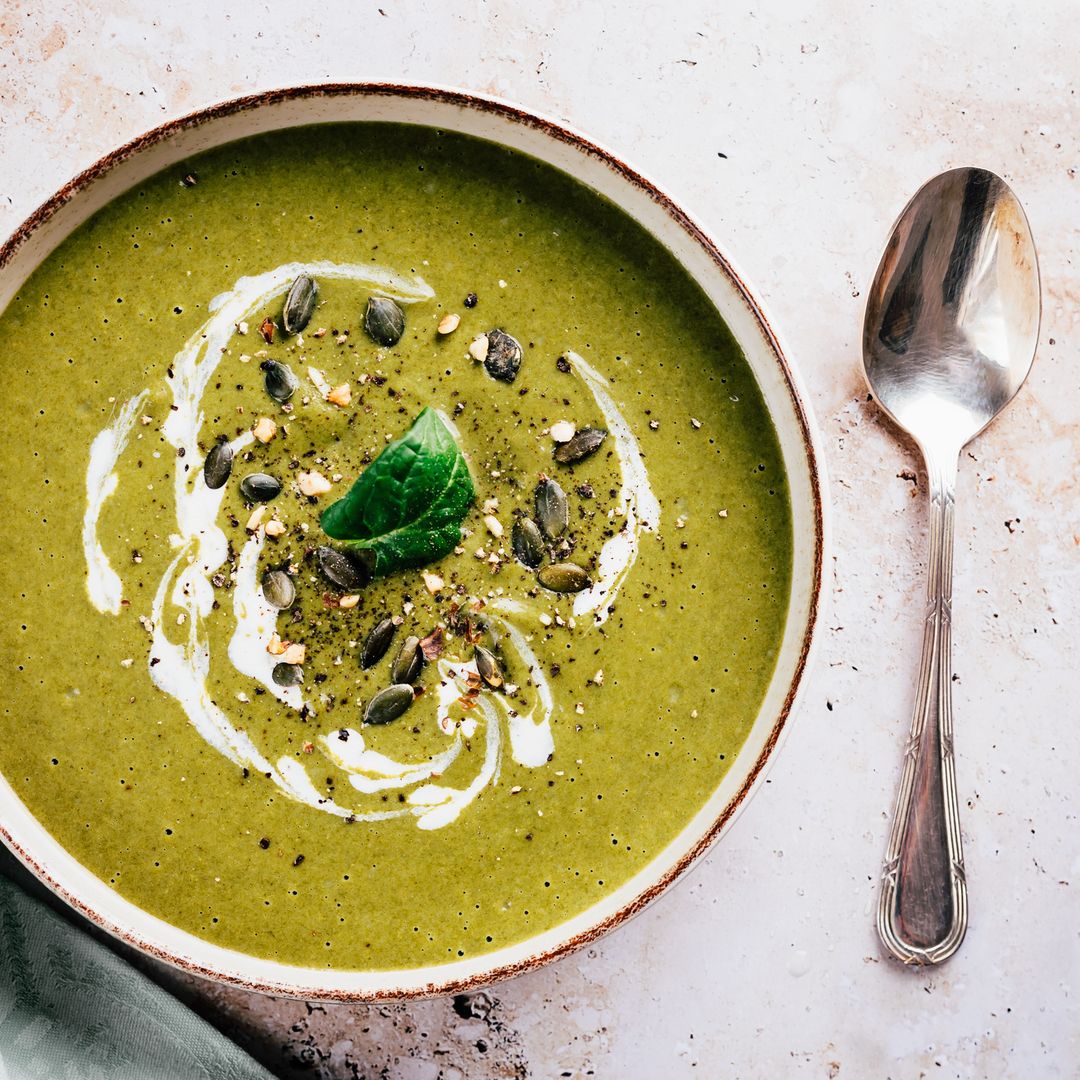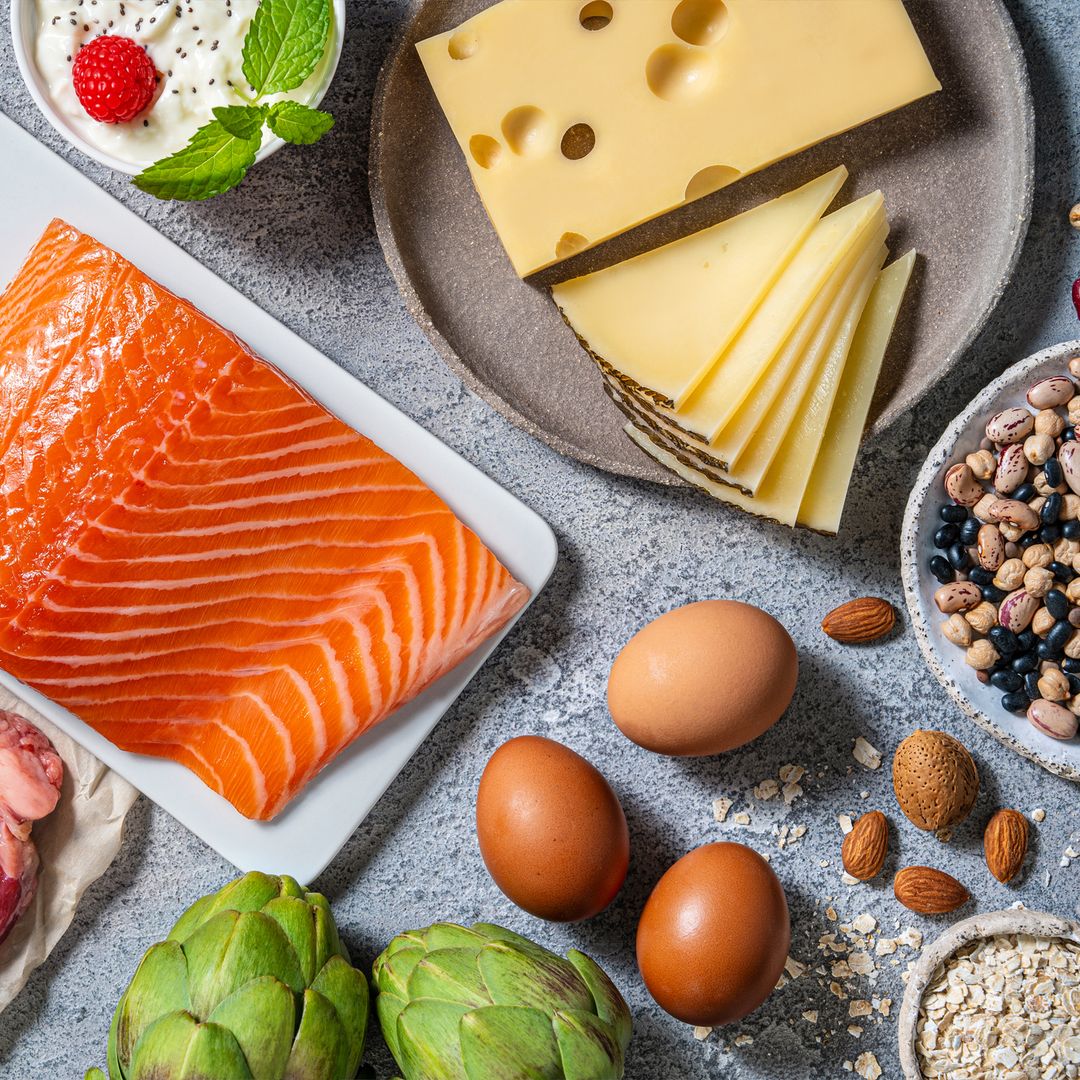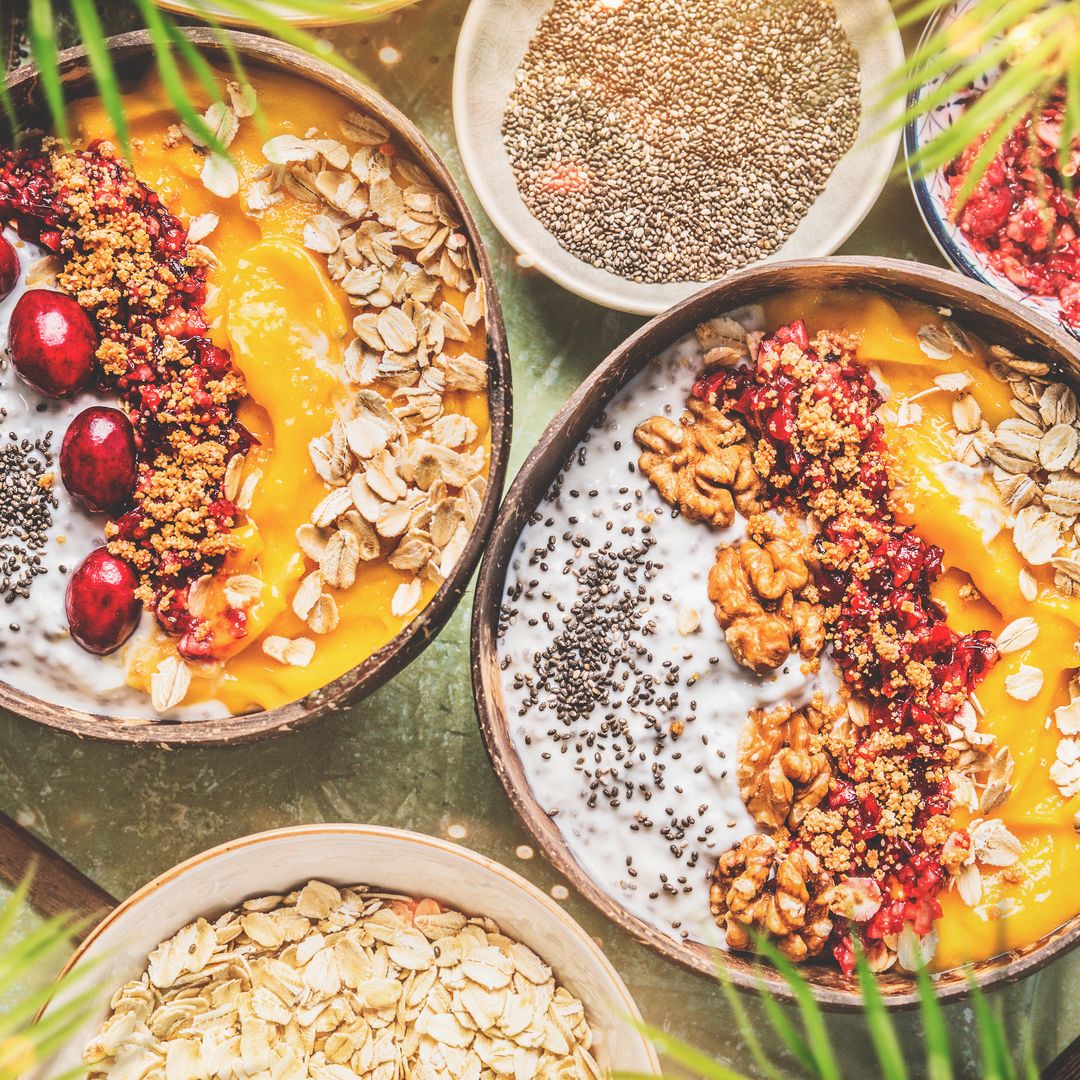Still battling with the classic supermarket conundrum of whether to buy organic or not? Shoppers have long questioned whether it's worth spending more money on foods that have been grown without pesticides, but according to Pesticide Action Network UK (PAN UK), certain fruits and vegetables are more contaminated than others. So it's time to get picky with your organic produce!
WATCH: Health tips from Jennifer Lopez, Goldie Hawn and Jennifer Aniston
While the majority of people are on board with the idea of environmentally-friendly products that minimise the chemicals we put in our bodies, our bank balance may disagree. Luckily, PAN UK has advised what we should and shouldn't be buying organic, naming their 'dirty dozen' and 'clean fifteen'. Keep scrolling to streamline your shopping list...
The 'dirty dozen': 12 fruit and vegetables you should always try to buy organic
These foods were found to have the highest levels of pesticide residues by PAN UK in tests between 2012 and 2017, and as a result, are the ones you should always try to buy organic where possible - and some of them may surprise you.
1. Grapefruit
2. Oranges
3. Lemons and limes
4. Strawberries
5. Pears
6. Grapes
7. Cherries
8. Peaches
9. Parsnips
10. Asparagus
11. Apples
12. Apricots
Other foods to consider buying organic
Fruit and vegetables are not the only products to contain what is known as 'pesticide cocktails'. PAN UK explained pesticides appear in millions of different combinations in varying concentrations, and there is growing concern about the potential impact of the cocktail effect on human health and the environment. These starchy foods and grains were also found to have multiple pesticide residues.
1. Rice
2. Bread
3. Wheat
4. Oats
5. Cereal bars
PAN UK revealed you don't need to buy all organic produce
The 'clean fifteen': 15 best fruit and vegetables to buy non-organic
These items were found to have the least amount of pesticide residues and therefore are generally okay to buy non-organic.
1. Beetroot
2. Corn on the cob
3. Figs
4. Mushrooms
5. Rhubarb
6. Swede
7. Turnip
8. Onions
9. Avocado
10. Cauliflower
11. Radish
12. Sweet potato
13. Broad Beans
14. Leeks
15. Pumpkin and squash
